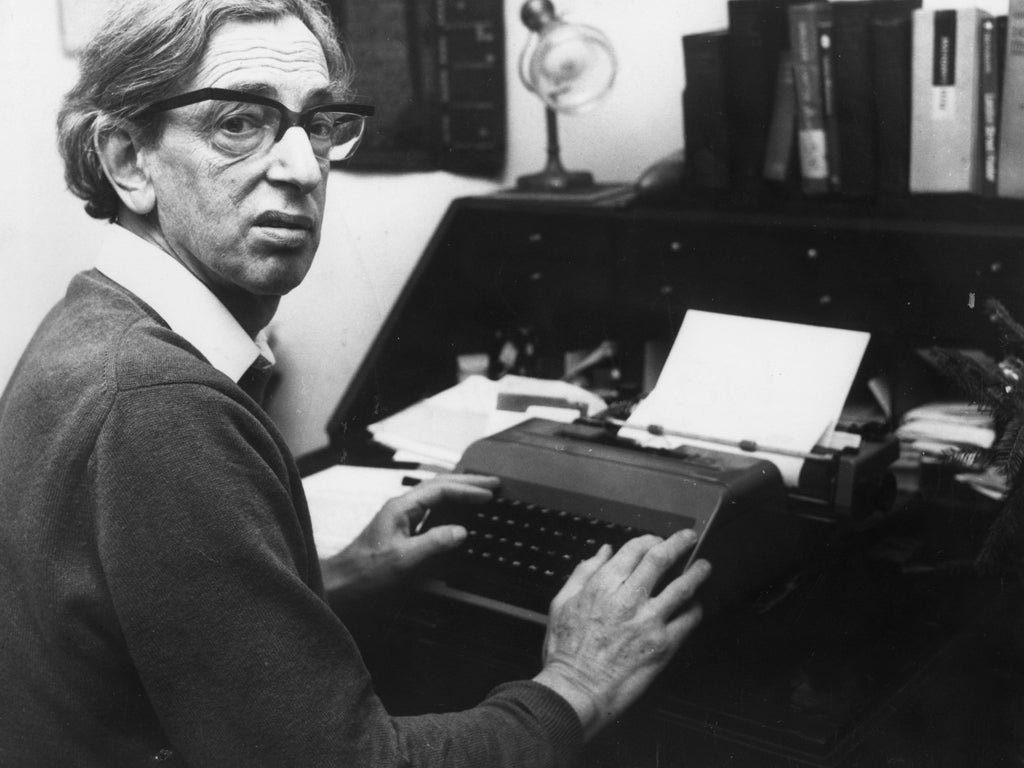Eric Hobsbawm wanted to use History to improve lives. Now, about those views on the Soviet Union...
On why, as jobs go, Marxist historian isn’t often suggested by career advisers at school


Your support helps us to tell the story
From reproductive rights to climate change to Big Tech, The Independent is on the ground when the story is developing. Whether it's investigating the financials of Elon Musk's pro-Trump PAC or producing our latest documentary, 'The A Word', which shines a light on the American women fighting for reproductive rights, we know how important it is to parse out the facts from the messaging.
At such a critical moment in US history, we need reporters on the ground. Your donation allows us to keep sending journalists to speak to both sides of the story.
The Independent is trusted by Americans across the entire political spectrum. And unlike many other quality news outlets, we choose not to lock Americans out of our reporting and analysis with paywalls. We believe quality journalism should be available to everyone, paid for by those who can afford it.
Your support makes all the difference.Eric Hobsbawm, who’s just died aged 95, was lucky he’s not starting out now. Because, as jobs go, Marxist historian probably isn’t suggested by most careers advisers.
If you were insistent, you might be told, “Well, at least create an attractive brand image. Maybe you could make a lecture on the Russian Revolution into a hit on YouTube, if you can train a kitten to jump backwards every time you say Lenin.”
It could emerge that he was subject to pressure like this, and his publishers insisted he promote his next book by appearing on Strictly Come Dancing. And it was the worry that losing to Jerry Hall in the cha-cha-cha could undermine his work on China’s growth rates under Chairman Mao that brought on the pneumonia that did him in.
Even the discussion about him on Newsnight failed to mention a single thing he’d written, and a typical comment came from Alain de Botton, who said: “He supported some good things. But he also supported some bad things.”
Maybe he’d been misinformed and was told this was a programme about Eric Hobsbawm recorded as a CBeebies special. And his next comment was going to be, “Hello 19th-century weavers, how are you today? Oh dear, machines are putting you out of work? Well, never mind. Instead of making garments for a pre-industrial market, let’s make a tree out of Plasticine instead.”
But his books have been hugely popular and influential, despite being full of long words and written from a Marxist point of view. One possibility is that, along with his colleagues in the Communist Historians Group, he wrote history as it was rarely written, not an account of kings and generals but from a perspective of the majority of the population.
That could explain why it appeared difficult to find panellists who could speak with any authority about him, as the Labour Party that would once have provided a list of characters to discuss historical ideas could now hardly come up with anyone. They’re terrified of admitting having an “ideology”. So if asked to explain what they stand for, they make statements such as, “I believe passionately and utterly in people. I’m not one of these politicians that puts biscuits first, or gives priority to bits of coiled-up string or starfish, with me it’s always people. Only this week, while in Leicester, I met three different people, and it reminded me why I believe in people. And those are the values I learned from my grandfather who fought in the Spanish Civil War.”
Hobsbawm was driven to write about the inequalities of the past because he wanted to address the inequalities of the present. The only problem was that he thought the regime accomplishing that was Soviet Russia, when in fact it was starving millions, shooting dissidents, invading anywhere it fancied and signing a pact with Hitler. But no one’s perfect.
Join our commenting forum
Join thought-provoking conversations, follow other Independent readers and see their replies
Comments